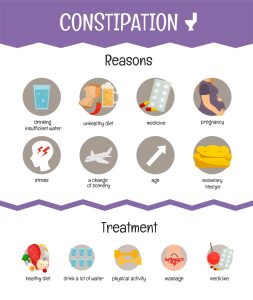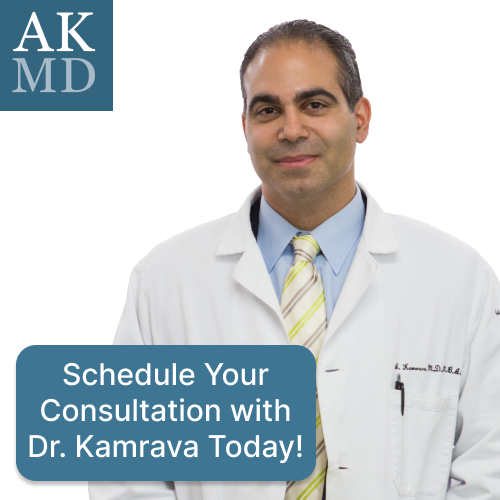Best Way to Get Rid of Hemorrhoids
External hemorrhoids might be visible to the doctor. A doctor has to examine your rectum and anal to determine whether you have internal hemorrhoids or not. Two common ways to find out if you have internal hemorrhoids:
Digital inspection
A finger is covered with lubricant and placed in your rectum by your doctor. He or she feels around for any abnormalities, such as bumps.
Visual examination.
Your doctor may use a proctoscope anoscope, or sigmoidoscope to inspect the lower part of your colon and rectum because internal hemorrhoids are frequently too soft to be felt during a rectal exam.
Situations that a doctor decides to do a colonoscopy to evaluate your colon when:
- Your symptoms point to the possibility that you have another digestive system disorder.
- You are at risk of developing colorectal cancer.
- You are in your middle age and have not had a colonoscopy in a while.
Hemorrhoids Treatment
Home remedies
Home remedies can oftentimes reduce the swelling, minor pain, and irritation associated with hemorrhoids.
- Consume fiber-rich meals. Eat more whole grains, fruits, and veggies. By doing this, the stool will become softer and more voluminous, preventing you from straining that can make the symptoms of pre-existing hemorrhoids worse. To avoid gassy issues, progressively incorporate more fiber into your diet.
- Apply topical hemorrhoid treatments. You can use pads with witch hazel or a numbing agent or use hemorrhoid cream without a prescription needed or a suppository containing hydrocortisone.
- Regularly take sitz baths or warm baths. Take a 10 to 15 minutes bath in the plain with warm water 2~3 times daily to treat your anal area. The toilet normally can fit over a sitz bath.
- Take painkillers. To temporarily ease your discomfort, you can take acetaminophen (Tylenol, other brands), aspirin, or ibuprofen (Advil, Motrin IB, other brands).
Hemorrhoid symptoms often go away with these remedies in a week. If you don’t feel better within a week or if the pain and bleeding are still severe, we recommend scheduling an appointment with your doctor immediately.
Medications
Your doctor might advise over-the-counter lotions, suppositories, ointments, or pads if your hemorrhoids only cause minimal discomfort. These lotions have chemicals that including witch hazel, hydrocortisone, and lidocaine that help reduce itching and pain momentarily.
If not prescribed by your doctor, avoid using steroid cream without a doctor’s prescription for longer than a week. Steroid cream can thinner your skin.
How to get rid of external hemorrhoids?
Thrombectomy for external hemorrhoids
Your doctor can remove the exterior hemorrhoids if a painful blood clot (thrombosis) has developed inside of it, which can bring relief right away. When this local anesthetic technique is performed within 72 hours of the clot forming is most effective and will have the best result.
Minimally intrusive techniques
Your doctor might suggest minimally invasive approaches to treat hemorrhoids that home remedies can’t help. These procedures can be carried out in your doctor’s office or another outpatient facility and typically don’t need an anesthetic.
Rubber band ligation. To stop the circulation of internal hemorrhoids, your doctor wraps one or two narrow rubber bands near the base of the growth. In about a week, the hemorrhoid dries out and comes off.
An annoying side effect of hemorrhoid banding is bleeding, which may start two to four days after the treatment but is rarely severe. Sometimes, more severe complications can happen.
Injection (sclerotherapy). Your doctor shrinks the hemorrhoid tissue by injecting a chemical solution into it. Although the injection is not painful, it might not be as effective as rubber band ligation.
Coagulation (laser, infrared, or bipolar). Coagulation methods make use of heat, infrared light, or lasers. They induce internal hemorrhoids that are tiny and bleeding to stiffen and shrink. Coagulation often produces little discomfort and has some side effects depending on the individual.
Do hemorrhoids go away with surgical approaches?
Surgery is only necessary for a limited minority of hemorrhoid patients. However, if previous methods haven’t worked or you have big hemorrhoids, your doctor will suggest the following approaches to get rid of hemorrhoids:
- Eradication of hemorrhoids (hemorrhoidectomy).
Your surgeon removes extra tissue that causes bleeding using one of several ways. Local anesthetic and spinal anesthesia, sedation, or general anesthesia are required during the procedure.
The most thorough and effective method of treating severe or recurrent hemorrhoids is hemorrhoidectomy. Urinary tract infections might happen temporarily from emptying your bladder. This side effect generally follows spinal anesthesia.
After the procedure, most patients experience some pain, which can be relieved by a painkiller. You might also benefit from taking a warm bath.
- Hemorrhoid stapling.
Hemorrhoid stapling is a process that prevents blood goes to hemorrhoidal tissue which is applied to internal hemorrhoids usually.
Hemorrhoidectomy typically causes more discomfort than hemorrhoid stapling. Hemorrhoid stapling allows a sooner get back to normal life compared to the hemorrhoidectomy procedure. You should discuss with your doctor the best options for treating your hemorrhoids.
How to get ready before the doctor’s appointment for Hemorrhoids?
Make an appointment with your primary doctor if you experience hemorrhoid symptoms. For examination and treatment, your doctor may, if necessary, refer you to one or more specialists, such as a colon and rectal surgeon or a gastroenterologist.
The following advice will assist you in getting ready for your appointment.
Any prerequisites for appointments should be understood. Inquire about any prerequisites when you schedule the appointment.
Make sure you have the lists ready, including:
- Your signs and how long you have been noticing them.
- Details about your regular bowel habits and diet.
- Your medicine, vitamin, and supplement intake.
- Any treatments you have tried for hemorrhoids.
- Questions to ask.
Some concerns to address to your doctor about hemorrhoids are:
- What’s the most likely cause of my symptoms?
- Is hemorrhoid temporary or permanent?
- Am I at risk for this condition’s complications?
- What is the best way to get rid of hemorrhoids?
- How to get rid of external hemorrhoids?
- Do I qualify for surgery?
- Any home remedies that might be beneficial?
- If you also have other health issues, please inform your doctor in advance.
Best Way to Get Rid of Hemorrhoids
It’s hard to find surgeons who are as skilled or as committed to their work as Dr. Kamrava when it comes to colorectal issues. Dr. Kamrava has many years of experience treating a variety of colorectal conditions, including anal fissures, colon cancer, hemorrhoids, fistulas, etc. He offers patients compassionate care and transformative outcomes. Dr. Kamrava is board-certified in colorectal. Please call (424)279-8222 to schedule your appointment if you have hemorrhoids or other colorectal issues.




